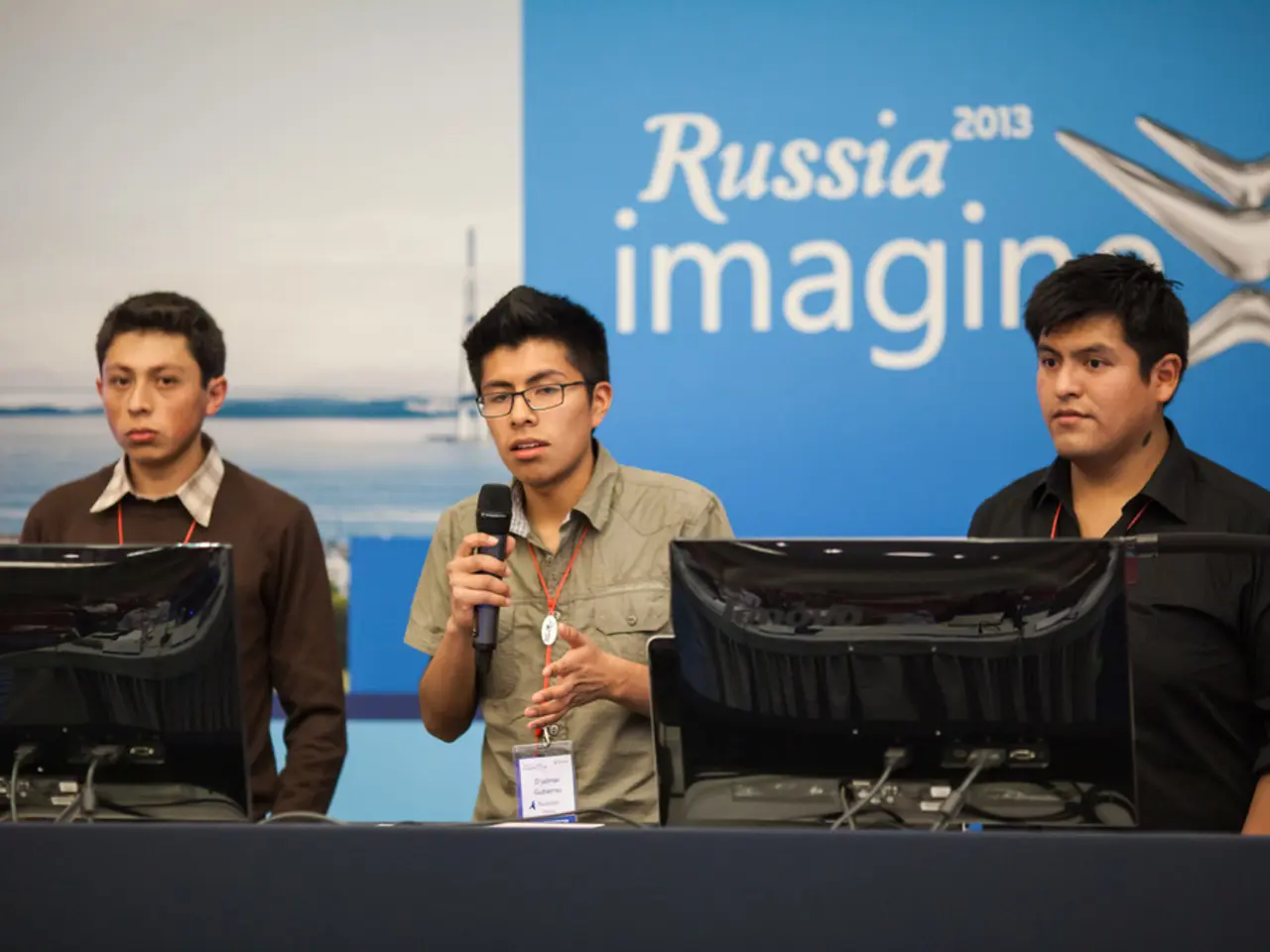Initiating 'Eastern Germany Incursion' Strategy - Implementation of Intensive Media Campaign by Greens in Eastern Germany
In a bid to strengthen its standing in Eastern Germany, the Green Party has unveiled a fresh strategy titled "Honest, Contentious, Approachable." This strategic plan outlines several key approaches aimed at increasing the party's presence, improving its image, and fostering greater connections with the region's population.
1. Authenticity and Honesty: The Greens are committed to being transparent and honest in their communication, eschewing polished rhetoric that may seem detached or insincere. This move is designed to build trust among Eastern German voters who may be wary of traditional political discourse.
2. Addressing Local Concerns: The document emphasizes the importance of addressing issues that directly impact Eastern German communities, such as economic development, employment, and social cohesion. By focusing on local concerns, the Greens aim to demonstrate their relevance and responsiveness.
3. Approachability and Ground-Level Engagement: The party plans to enhance face-to-face interactions, town hall meetings, and grassroots campaigning to make politicians more accessible. Personal contact is seen as crucial to bridging the distance and mistrust that some Eastern Germans feel towards traditional politics.
4. Contending with Historical and Political Context: The Greens acknowledge the unique historical experiences of Eastern Germany, including the legacy of the GDR and subsequent economic challenges. They aim to engage in open dialogue about these topics, including controversial debates, rather than avoiding them.
5. Diverse Representation and Inclusivity: The strategy calls for showcasing diverse candidates from various backgrounds, including those with Eastern German roots, to foster identification with local populations.
6. Embracing Criticism and Debates: The strategy encourages embracing contentious discussions rather than shying away, to show a commitment to democratic engagement and openness.
In addition to these initiatives, the Green Party is planning a "presence offensive" in Eastern Germany, which includes the establishment of a new advisory board to develop further impulses. Party leader Felix Banaszak, a native of Duisburg, has opened an office in Brandenburg an der Havel and plans to hold discussion rounds titled "Beer with Banaszak" in the area.
The party has also recognised the need for more Eastern German heads in key positions and aims to better connect its members in the East and West. However, no quota will be implemented for Eastern German heads in these positions.
The Greens continue to support Ukraine but aim to address fears of war more strongly. Climate policy should play a stronger role in the Green Party's social aspects. At the turn of the year, only a small fraction of the Green Party's members come from the East, with 12,542 members.
This new strategy represents a significant shift for the Green Party, which has been criticised in some quarters for being perceived as a remote Western academic and elite party in the East. The party leader, Felix Banaszak, has stated that the party needs to learn to be a truly German party, and this strategy seems to be a step in that direction.
- In line with their commitment to transparency and open dialogue, the Green Party plans to establish an advisory board in Eastern Germany to develop further initiatives, hoping to address criticisms of being perceived as a remote, academic, and elite party in the region.
- Recognizing the importance of local representation, the Green Party aims to increase the number of Eastern German members in key positions within the party, without implementing any quotas, and improve connections between their members in both the East and West. Furthermore, they intend to focus on addressing Eastern German concerns related to their unique historical experiences, economic development, employment, and social cohesion.






